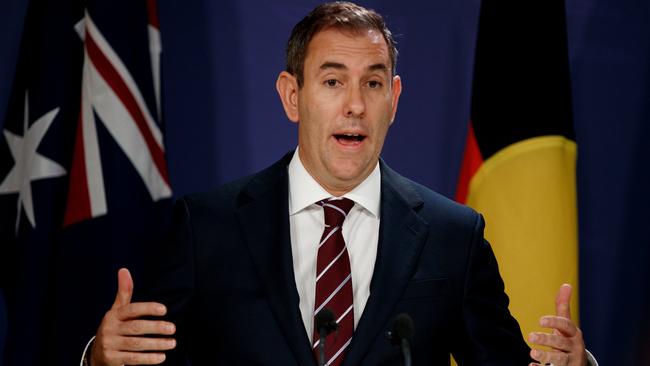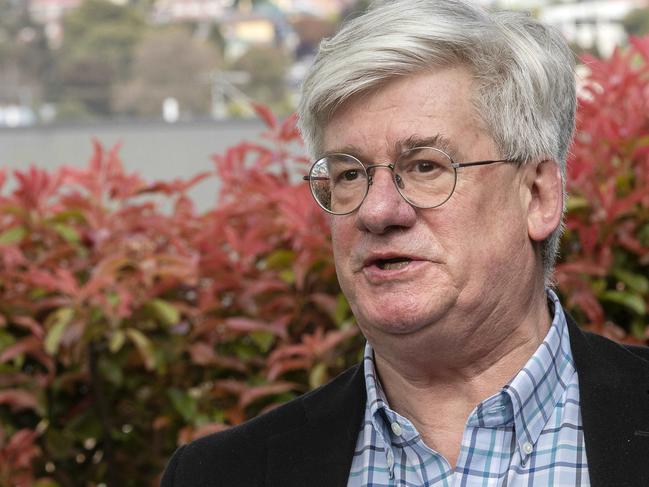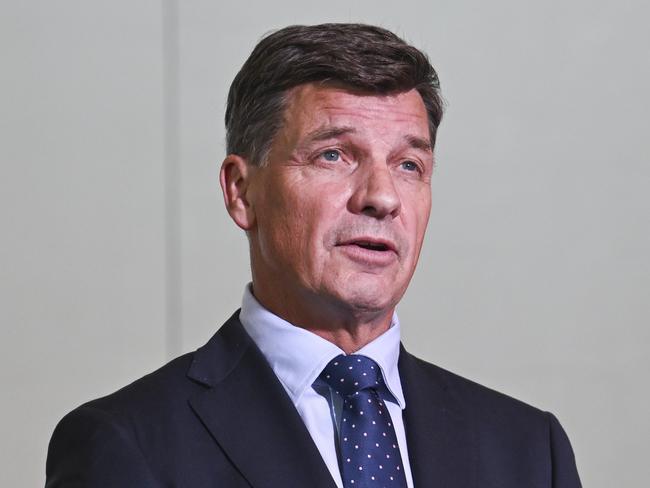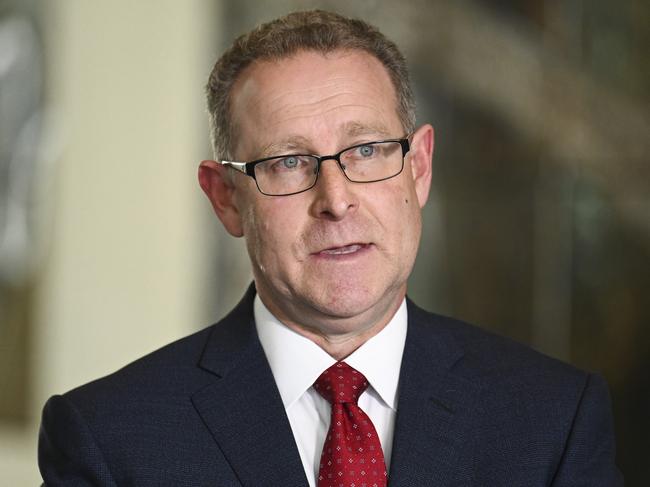Australia has seven consecutive quarters of negative growth per capita
Economists have warned Aussie households are feeling the “squeeze” of the cost-of-living crisis more than ever. See why.
National
Don't miss out on the headlines from National. Followed categories will be added to My News.
Australia’s economy has reached a grim historic milestone of 21-months of negative growth on a per person basis, with only the nation’s record migration intake and high government spending masking a broader recession.
Businesses are begging Labor to focus on productivity-boosting measures to lift Australia’s sluggish economy, which grew by only 0.3 per cent in the three months to September, according to new national accounts figures released on Wednesday.

When factoring in a per capita rate, Australia’s economy actually went backwards by 0.3 per cent - the seventh consecutive negative quarter in a row.
Economists have warned households are feeling the “squeeze” of the cost-of-living crisis more than ever as real household consumption slumped even as Australians had more money in their pockets due to the stage three tax cuts coming into effect from July.
Independent economist Saul Eslake said the seven consecutive quarters of negative growth on a per capita basis had “never happened before” in Australia.
“One possible way of interpreting it is that if it hadn’t been for the extraordinary population growth we’ve had since the middle of 2022 we probably would have had at least one and probably more than one quarter of negative real GDP growth, and Chalmers would have had to have been explaining the ‘r’ word (recession) away,” he said.

Mr Eslake said the decline in real household consumption was a sign more Australians were feeling the “squeeze” of the cost of living crisis.
Coalition treasury spokesman Angus Taylor said the figures were a “nightmare” for businesses and households, declaring Labor’s economic scorecard was a “fail” as it’s higher spending was fuelling inflation and delaying any interest rate cuts.
“This is a government that has lost control of its spending, and the result of that is there is no comfort in these numbers for the Reserve Bank,” he said.
“At the end of the day, the Reserve Bank looks at the balance between supply and demand and with a collapse in productivity supply is going in exactly the wrong direction.”

Treasurer Jim Chalmers on Wednesday acknowledged Australia’s economy was “weighed down” by interest rates, cost-of-living pressures and global “uncertainty” as he rejected the Coalition’s “high spending” allegation arguing the bulk of new expenditure was from the states, while the biggest cost for the Commonwealth was in defence.
“Very strange to be describing defence spending as some kind of sugar coating in the economy,” he said.
“If our political opponents are planning big cuts to defence spending, they should say so.”
Mr Chalmers said he knew progress in national data like headline inflation and relatively high jobs figures “doesn’t always perfectly translate to how people are feeling and faring,” which was why the government had focused on “responsible economic management, fighting inflation and rolling out cost of living help without ignoring the very substantial risks to growth”.

Business groups described the economy as “flailing” and in “urgent need of a growth agenda” with Australian Chamber of Commerce and Industry (ACCI) chief executive Andrew McKellar saying households and businesses were “really starting to feel the pinch”.
“The cost pressures on business have been overwhelming,” he said.
Mr McKellar said the government should be focused on a productivity as the pathway forward.
“The government should be looking to introduce measures to reduce the cost of doing business and re-energise the economy through more flexible workplace relations and removing red tape,” he said.
Masterbuilders chief economist Shane Garrett said with the data showing living standards had again dropped, Australia’s economic growth was “just holding its head above water”.
“The only way to deliver permanent improvements in living standards is through sustained productivity improvements and turbocharging the private sector,” he said.
More Coverage
Originally published as Australia has seven consecutive quarters of negative growth per capita





